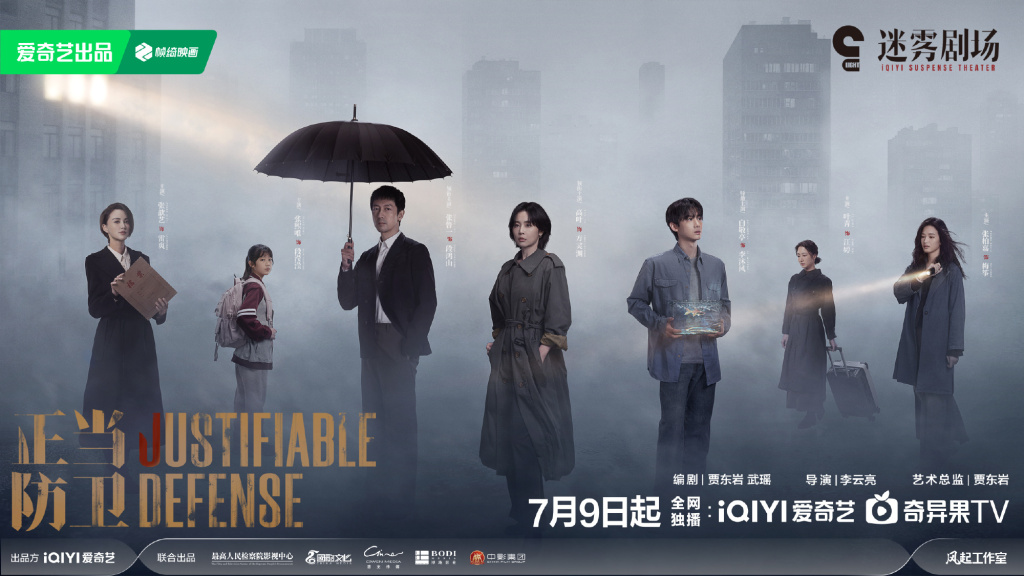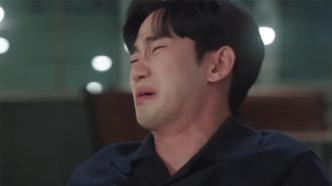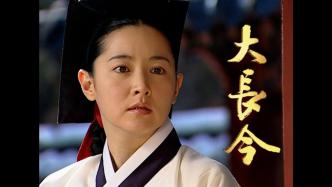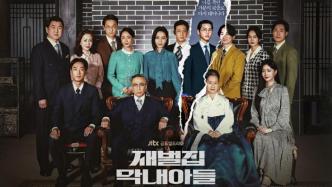
"Rebirth" in Chinese web articles
"The Youngest Son of the Chaebol" starring Song Zhongji and Li Xingmin is quite popular. In addition to Song Zhongji's appeal and Li Xingmin's powerful acting skills, the novelty of the theme is also a very critical factor.
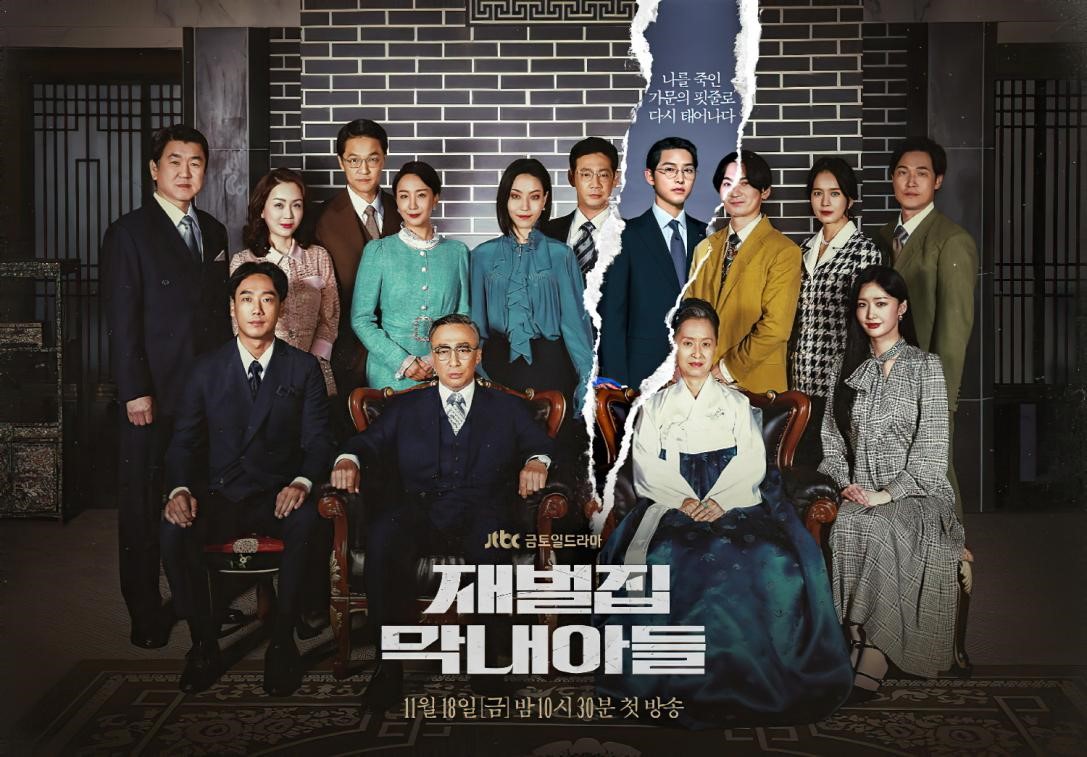
"The Youngest Son of the Chaebol" poster
People who are familiar with Chinese online novels are not unfamiliar with the theme of rebirth in online novels. Many years ago, a large number of online articles on the theme of rebirth appeared, and there were a lot of them. When "The Youngest Son of the Plutocrat" was broadcast, some netizens joked: Isn't this the "melting stem" work of Jinjiang Literature City's rebirth?
In fact, China's online literature has always been the pioneer and main force of "going overseas". Compared with film and television dramas, the number of online articles published overseas is even greater. In addition to regular physical book publications, there are also a large number of online articles that are translated and published by fans. Statistics show that China's online literature has formally exported more than 10,000 online works overseas, and there are countless private ones.
China's online literature started early (the establishment of the VIP charging system in 2003 was a watershed), with a large number of creators and a large number of readers, which is unique in the world. Coupled with relatively loose control in the field of online literature, creators can give full play to their ingenuity. The creativity and imagination of Chinese online literature is the world's best, and it has also profoundly influenced the creation of online literature and comics in other Asian countries. Including South Korea. Nowadays, the themes of many online articles and web comics in South Korea are mostly popular in Jinjiang and Qidian, and they have also begun to appear together on the Korean Internet.
Since our rebirth article appeared so early, why didn't works like "The Youngest Son of the Chaebol" appear earlier in the field of film and television dramas?
There are still some film and television dramas adapted from Rebirth, but they have no trace of Rebirth after the adaptation. For example, "Splendid Weiyang" starring Tang Yan and Luo Jin in 2016 was adapted from the online article "The Concubine is Poisonous". blade enemy. The adapted film and television drama version has no rebirth setting, and has become a normalized ancient puppet. Another example is "The Great Player of Time and Space", which was broadcast in April this year, which was broadcast in April this year. The protagonist comes to parallel time and space through a game and gets "rebirth". The drama version needs all kinds of magical changes in order to pass the review, and the plot tends to be nondescript, but it becomes a drama with four different characters.
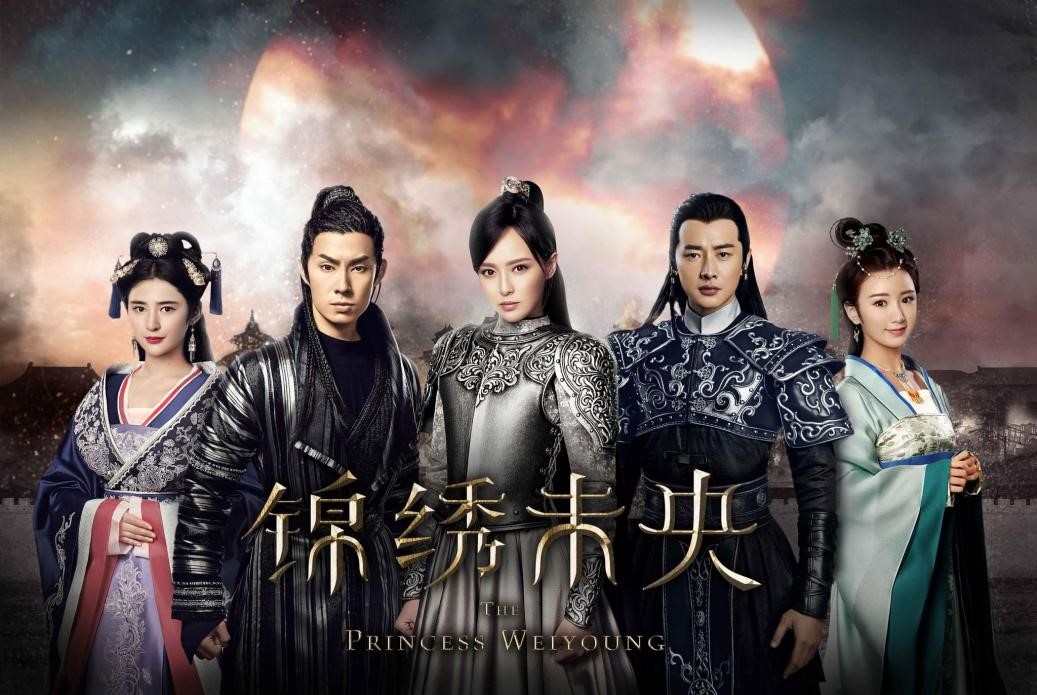
Adapted from "Splendid Weiyang" by Rebirth
Resentment mechanics in "Rebirth"
But as far as the "mother type" time-traveling novels of rebirth are concerned, we do have quite a few films and television dramas adapted from time-traveling novels. For example, "Scary Step by Step", which traveled to the Qing Dynasty, or "Celebrating More Than Years", which traveled to another foreign historical time and space.
Then it involves the distinction between "crossing" and "rebirth". Generally speaking, the reasons for time travel are mostly accidental and random; the time and space traveled is "foreign land", or a rather remote past - almost all ancient dynasties in China have been traveled through, or traveled to the future; and if Traveling to the current time and space, then it is probably a parallel time and space.
Therefore, the pleasure mechanism of traversing works comes from the fact that the "foreign" time and space is full of unknowns. With the help of "historical advantages" (insight into the direction of history) and "modern advantages" (familiarity with and application of modern civilization), the protagonist has a great time in the foreign time and space. Show your skills and highlight the fun of exploring another life. However, the time-traveling works are not all "cool", like "Scary Step by Step" is full of "abuse". Even if the protagonist has various advantages, it is difficult for her to change the direction of history, and the struggle between emotion and reason is extremely difficult.
In contrast, the origin of rebirth is clearer: the protagonist has died; the time and space after rebirth is in the same time and space as the protagonist, and the protagonist has a second chance to live after rebirth.
More importantly, the life logic of the reborn protagonist is based on "resentment", which is the philosophy of the weak. That is, in the protagonist's first life, he was a weak person on a certain level, and his life was harmed in some way, which caused his final death, and the protagonist harbored resentment. After he was reborn, "resentment" dominated his logic: he wanted to pay back everything he hated, he wanted to make up for what he had lost, and he wanted to take back everything he should have gained.
Therefore, in Rebirth works, "revenge" is the most important theme. The protagonist was murdered by a traitor in his previous life. After his rebirth, he relied on his information advantage to turn defeat into victory by repaying grievances. There are many popular works in this type of web articles, such as "The Concubine is Poisonous", "Rebirth: The Poisoned Queen", "Rebirth of the Evil Mother-in-law", "Rebirth: The Jin Se is Marriage", "Spring Banquet" and so on.
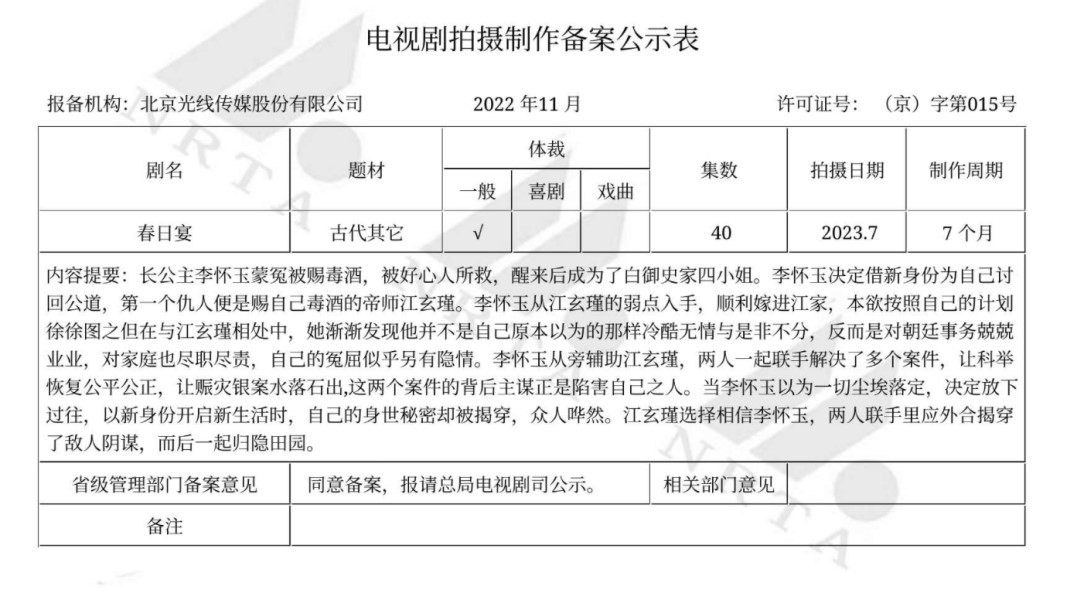
The latest filing announcement, the adaptation of "Spring Banquet" is on the agenda
Naturally, compared with time-traveling works, rebirth works have a more distinct pleasure mechanism. How frustrated the protagonist was in his first life, how happy he will be in his second life. He will avoid all kinds of traps that he will fall into in his first life, consciously prevent problems before they happen, and use all kinds of information advantages and choice privileges from his first life to quickly accumulate wealth and become famous; Those who bullied him launched revenge against evil with evil, seeing them helpless and defeated like clowns in the face of the general trend of history.
After understanding the above background and then looking at "The Youngest Son of the Chaebol", you will find that in addition to the full "localization" (combined with the background of the chaebol in Korea and the contemporary history of Korea), the various uses of the "rebirth" mechanism in the play , It is indeed very maturely used in Chinese web texts ten years ago.
It's a pity that our drama creation environment is still not as relaxed as that of online articles, so that there are only a handful of rebirth articles that are film and television, and they are beyond recognition.
The refreshing feeling of "relief of hatred"
In "The Youngest Son of the Chaebol", Yoon Hyun-woo (Song Joong-ki), a wage earner of a big Korean chaebol, works diligently and diligently. As long as it is an instruction from the boss's family, he will not refuse, do not ask questions, and will not do it. judge. He is as loyal as "a dog" of the Shunyang Group, and he even takes care of changing and cleaning the toilet for the wife of the chaebol.
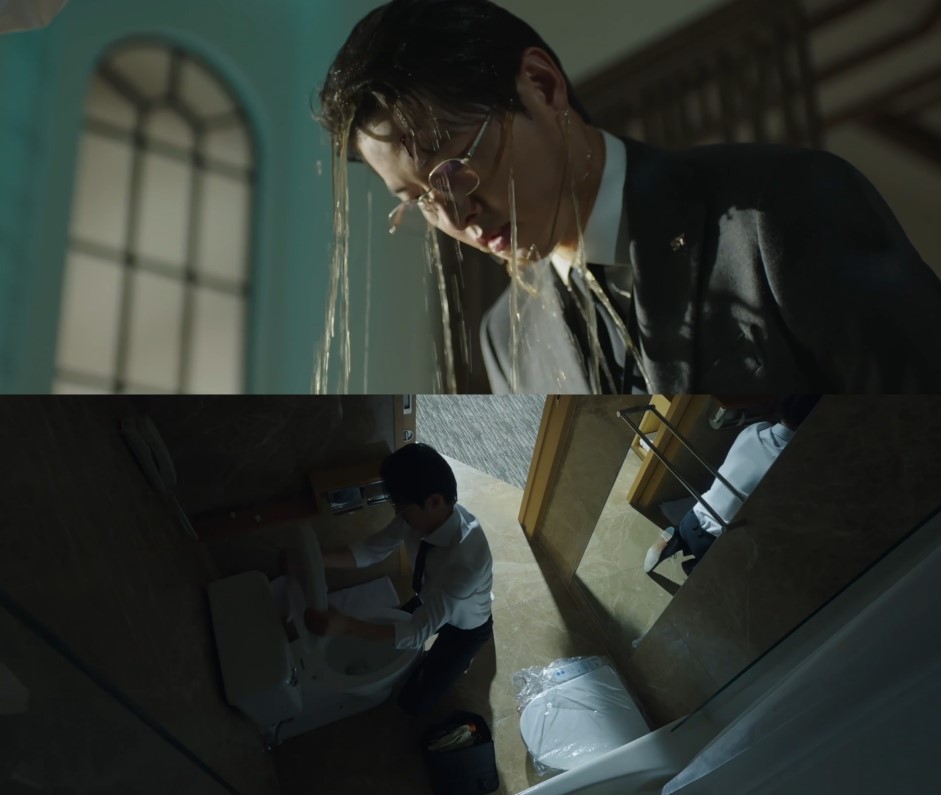
In the previous life, Yoon Hyun-woo worked for the chaebol
Even so, he was still a cheap and disposable white glove of the Shun Yang Group, and he was executed by the Shun Yang Group in a foreign country.
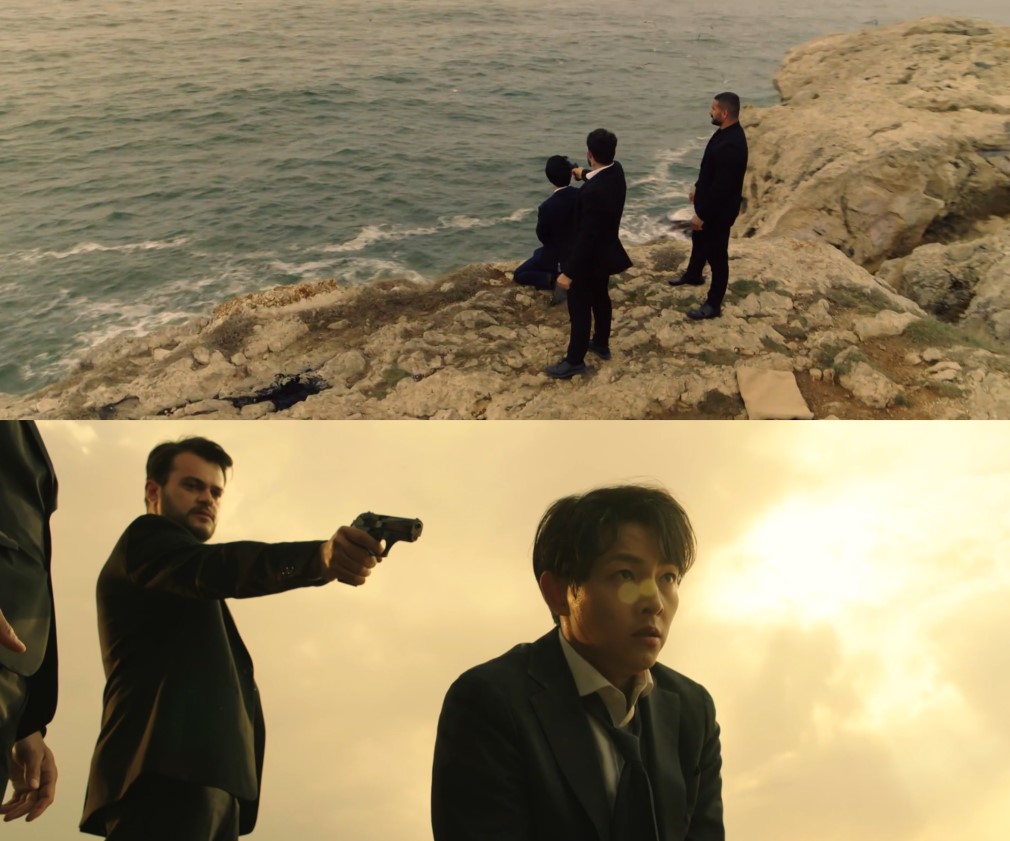
Yoon Hyun Woo was thrown away
He died with resentment in his heart, and unexpectedly returned to 1987. He was reborn as Chen Daojun (played by Song Joongki), the youngest son of the chaebol family. Resentment dominated his revenge. pay the price.
Therefore, the main axis of the plot is that Chen Daojun uses his information advantage to be invincible, fights wits and courage with the people of Shunyang Group, and finally buys Shunyang Group to achieve revenge on those who killed him.
It is worth mentioning that after Yin Xuanyou was killed and reborn, he did not become Yin Xuanyou, but traveled to Chen Daojun, the youngest son of the chaebol family, and thus gained rebirth; in the time and space after his rebirth, there still exists another Yoon Hyun Woo leads an ordinary life.
Behind such a design (which is also very common in domestic rebirth web articles), on the one hand, it makes the entire "resentment" mechanism more provocative: the poor young man at the bottom was killed by someone in the upper class, and his revenge is reasonable. On the other hand, Yin Xuanyou's rebirth as the youngest son of the chaebol family helps to focus the plot within the chaebol family, which has a more "spectacular effect". This is the gossip mentality that audiences all over the world have: they may be a little bit hostile to the rich, but they are also curious about how extravagant and extravagant the life of the rich is, and how bloody the battle for inheritance rights is.
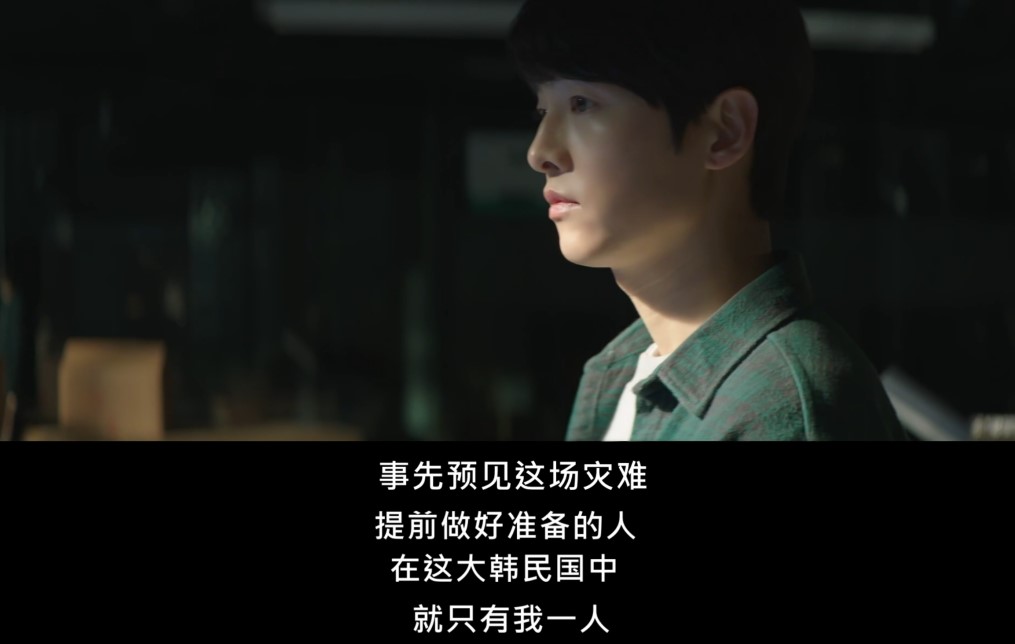
Chen Daojun cheated all the way, avoiding the 1997 Asian financial crisis
After the rebirth, the plot of "The Youngest Son of the Chaebol" is all the way. Chen Daojun knew what would happen in the future history of South Korea and the world. He speculated in real estate, stocks, invested in Hollywood movies, invested in Amazon and other US stocks all the way, and made a fortune. As a loyal subordinate of Shunyang Group, he is familiar with the development history of Shunyang Group, and he is also familiar with the experience of Chen Yangzhe (played by Li Xingmin), the founder and head of Shunyang Group. Gain an advantage in the competition for candidate heirs.
If we say how much "hate" was in the previous life, then how much "hate" will be "relieved" after rebirth, and the feeling of refreshment will be as strong.
"Benefiting the World" of the Resentful
Previously, many professional scholars sneered at time-traveling works including rebirth, thinking that they were "YY works" with little nutrition, with a "pig spirit", that is, the counterattack life imagined in the works is comparable to that of a pig. "Four Great Ideals": "Fences all around fall down, feed falls from the sky. Butchers all over the world die, and people all over the world believe in Buddhism."
Such a statement is too harsh. Because YY is innocent and life is too exhausting, there is nothing wrong with venting emotions and satisfying assumptions in Shuangwenshuang dramas; it also ignores the in-depth expression and the possibility of classicization of such works.
If we turn the clock forward, at the end of the Qing Dynasty and the beginning of the Republic of China, some fantasy novels actually appeared in China, such as "The Future of New China", "New China", "New Stone", "Lion's Blood", etc., the literati will humiliate the power and humiliate the country. The "resentment" of the old society has been transformed into expectations and imaginations for the new system and new society.
In other words, the resentment mechanism is not only guided by the individual's "exaltation", but also the elation of the disadvantaged. To solve this kind of resentment will inevitably involve the imagination of a new system.
In some online articles since the new century (especially time-traveling articles), such a valuable quality has also been retained. What they appeal to is not just personal grievances, but the possibility of a better system. For example, the tricky "Celebrating More Than Years" and "Jia Ke" that everyone is familiar with, "Zuo Son" by Angry Banana (these works have changed a lot after adaptation is another matter), and "Fat Fortune", "New Song Dynasty" and "Stealing" Ming" and so on. Under the package of the male frequency cool article are the creator's many thoughts on history and system, as well as the possibility of restarting another road.
stop at personal grievances
"The Youngest Son of the Chaebol" is closer to thinking about the current economic system in South Korea than most works. South Korea is a typical plutocratic capitalist economy, and Yin Xuanyou was destroyed by such a system in his previous life, so is his resentment directed to the review of this system and the imagination of a new way out, or is it ultimately limited to personal grievances, letting himself Become the new chaebol?
South Korea's chaebols are not only wealthy, but more specifically, they have formed a close peace with politics. The government provides policies, funds, and convenience to the chaebols. The development of the chaebols drives the growth of the Korean economy, promotes the transformation of the Korean economy, and enhances the international competitiveness of the Korean economy. Inevitably, the lack of distinction between government and enterprises will lead to serious government-business collusion and social corruption, and chaebols may override the judiciary. For example, "The Youngest Son of the Chaebol" has similar lines several times, referring to South Korea as the "Sunyang Republic", because Sunyang's money flow has penetrated into all aspects of South Korea's political circles, and corporate decisions in turn affect government decisions.
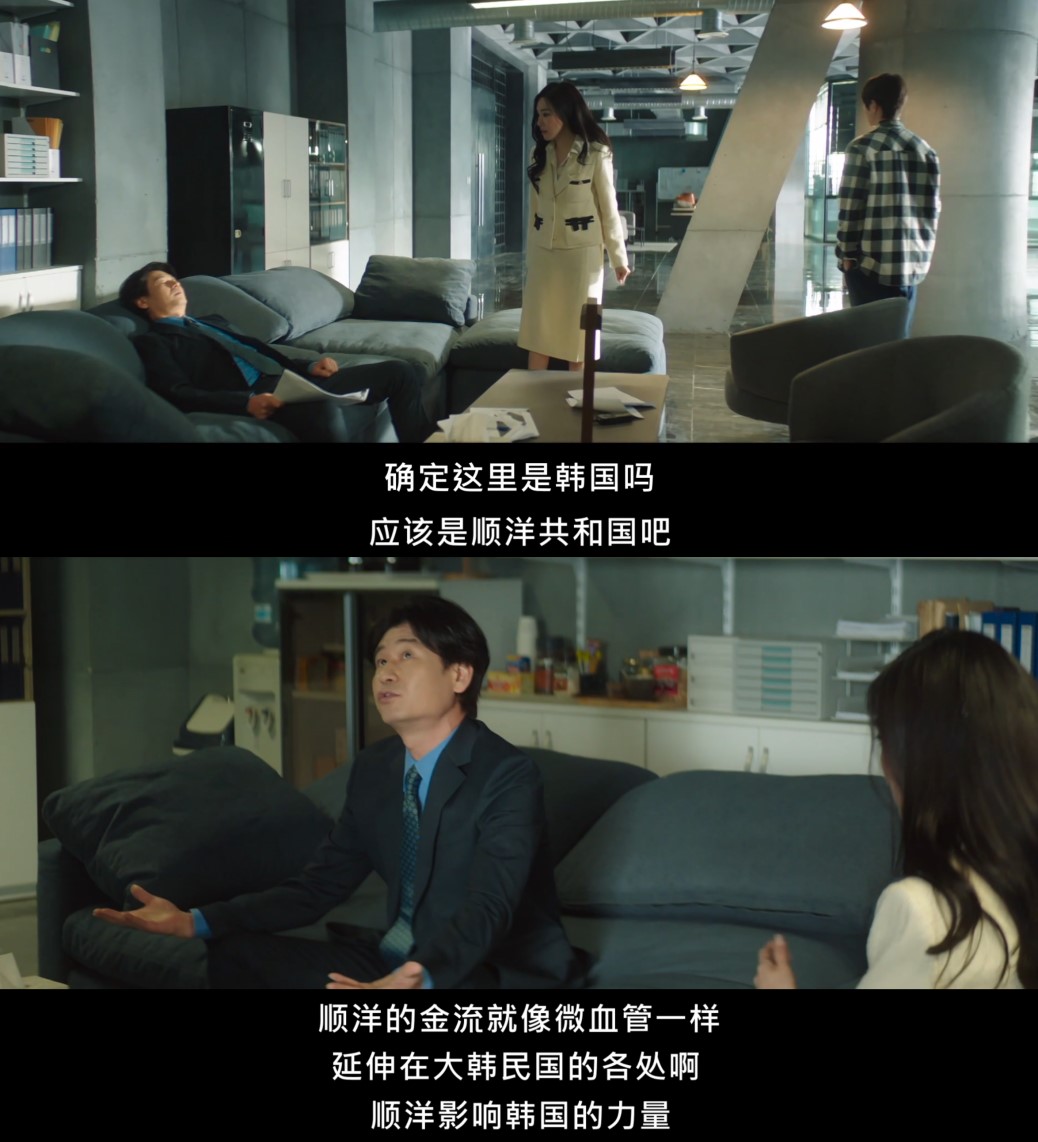
South Korean chaebols wield enormous influence
What's interesting is that after the rebirth, Chen Daojun never seemed to be against the chaebol capitalist system itself, but cared more about the chaebol's family management and inheritance system, so he did everything possible to buy Shunyang, that's all.
There are two interesting passages in the play that reflect this. First, Yin Xuanyou's mother bought a large amount of shares of Shunyang Life Sciences during her lifetime. After the stock rose several times, Shunyang Life Sciences chose to dissolve and liquidate. Minority shareholders lost everything, and Yin Xuanyou's mother committed suicide , but Shunyang Group made a huge profit of 480 million yuan.
When Chen Daojun asked Chen Yangzhe that this would damage the rights and interests of minority shareholders, Chen Yangzhe sneered and said why he cared about those ordinary people, "You can't be a commoner in this life." Chen Daojun hated all of this.
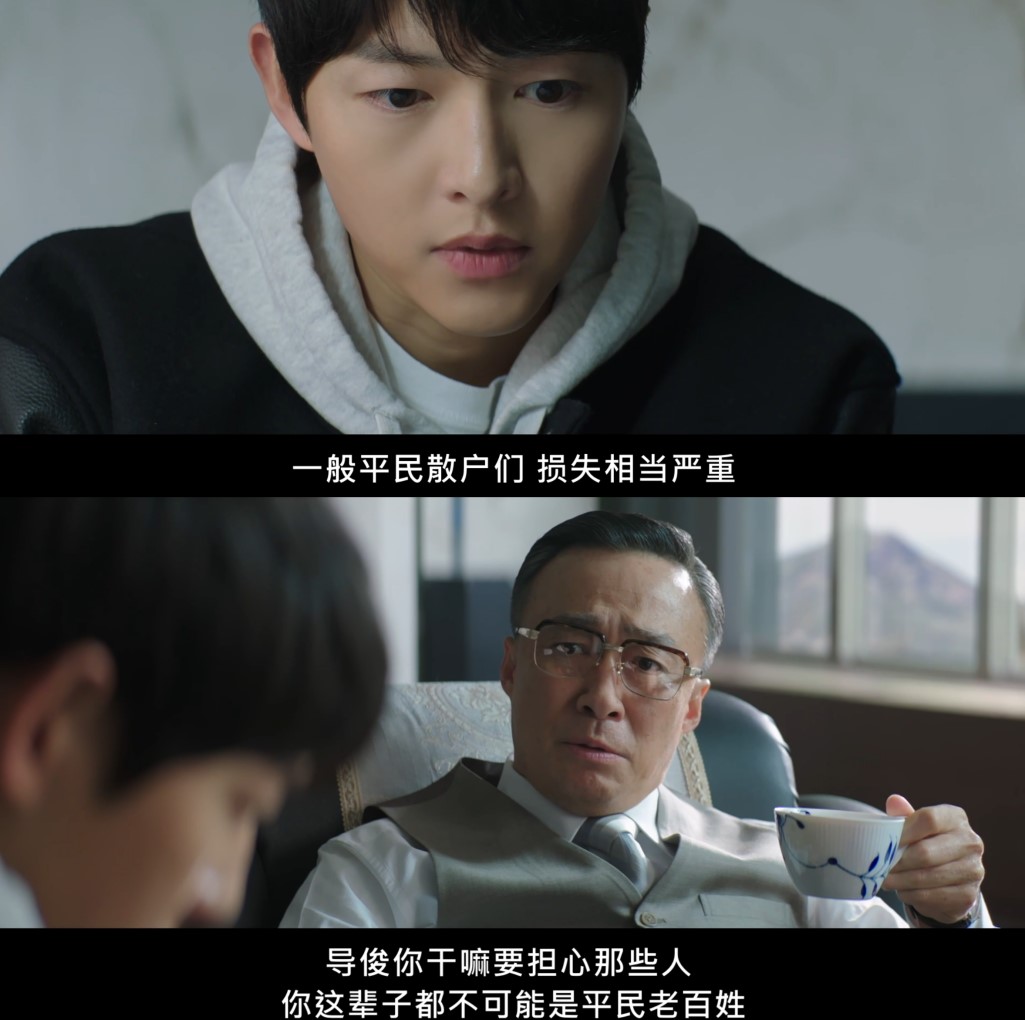
The big plutocrats are unscrupulous and devoid of conscience
The subtle thing is that in the subsequent plot, Chen Daojun, who knows the history, knew that a technology company called New Data would suffer a huge stock market crash. In order to bring down his aunt, Chen Daojun took advantage of this stock market crash to make his aunt lose everything , he successfully obtained the equity of Shunyang Department Store. At this time, Chen Daojun, who is full of ambition, will remember that in this stock market crash, many retail investors also went bankrupt, just like his mother?
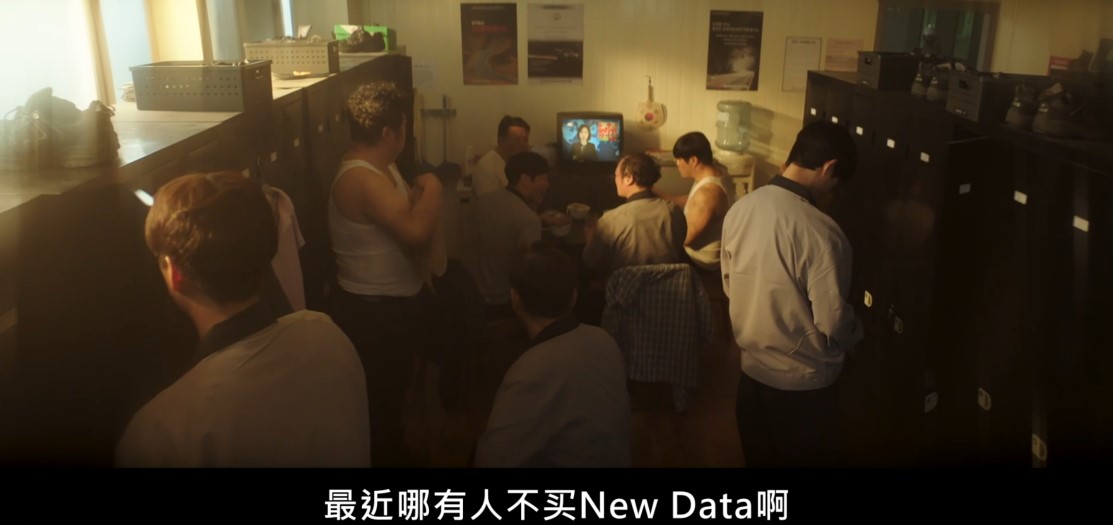
There are also many ordinary people who buy new data, Chen Daojun still chooses to manipulate stocks
Most of the viewers who follow "The Youngest Son of the Chaebol" will be impressed by Li Xingmin's acting skills, and there are especially many viewers who are fans of him on the Chinese Internet. Is it because everyone projected their love for Li Xingmin onto Chen Yangzhe, or did the audience agree with Chen Yangzhe's logic? Anyway, it can be seen from the lines that everyone likes Chen Yangzhe, including Chen Daojun in the play.
At this time, everyone must have forgotten how he disliked his young son who could not make money (he asked to "sprinkle salt" when he drove him away), how much he despised the low-level employees when he bought the car company, and how he operated The stock market makes him rich and retail investors lose their money, and how he makes his children live in hell because of his ambition, suspicion and change of heart... He is like a feudal emperor living in contemporary Korean society.
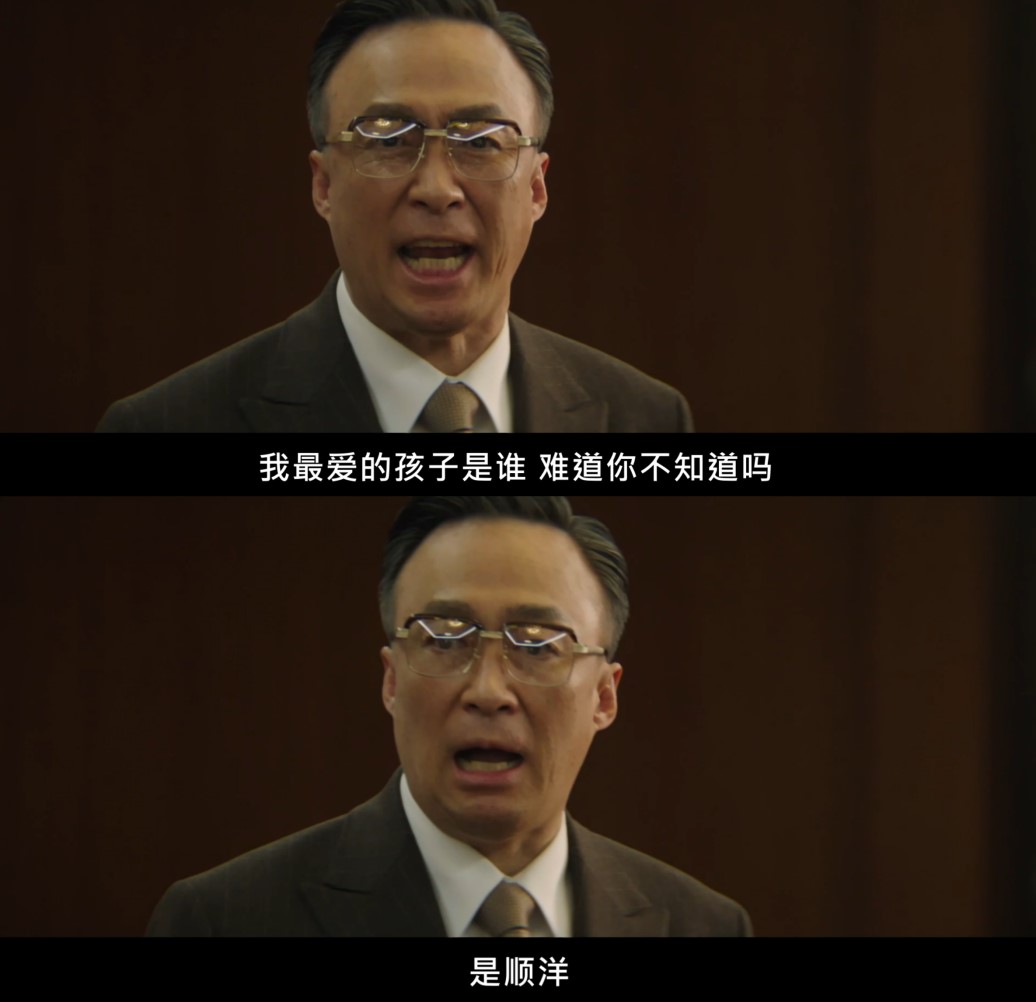
Chen Yangzhe (played by Li Xingmin), Li Xingmin's acting skills are really strong
It is undeniable that Li Xingmin's version of Chen Yangzhe has a strong personality charm, but his complexity is precisely the embodiment of the complexity of the Korean chaebol system. Whether it is Chen Daojun's acceptance of him, the acceptance of him by Korean audiences, or the acceptance of him by the Chinese Internet, it is enough to see that "The Youngest Son of the Chaebol" is just a cool drama, and it does not change the system. His imagination, abilities, and even motivations appear ambiguous.
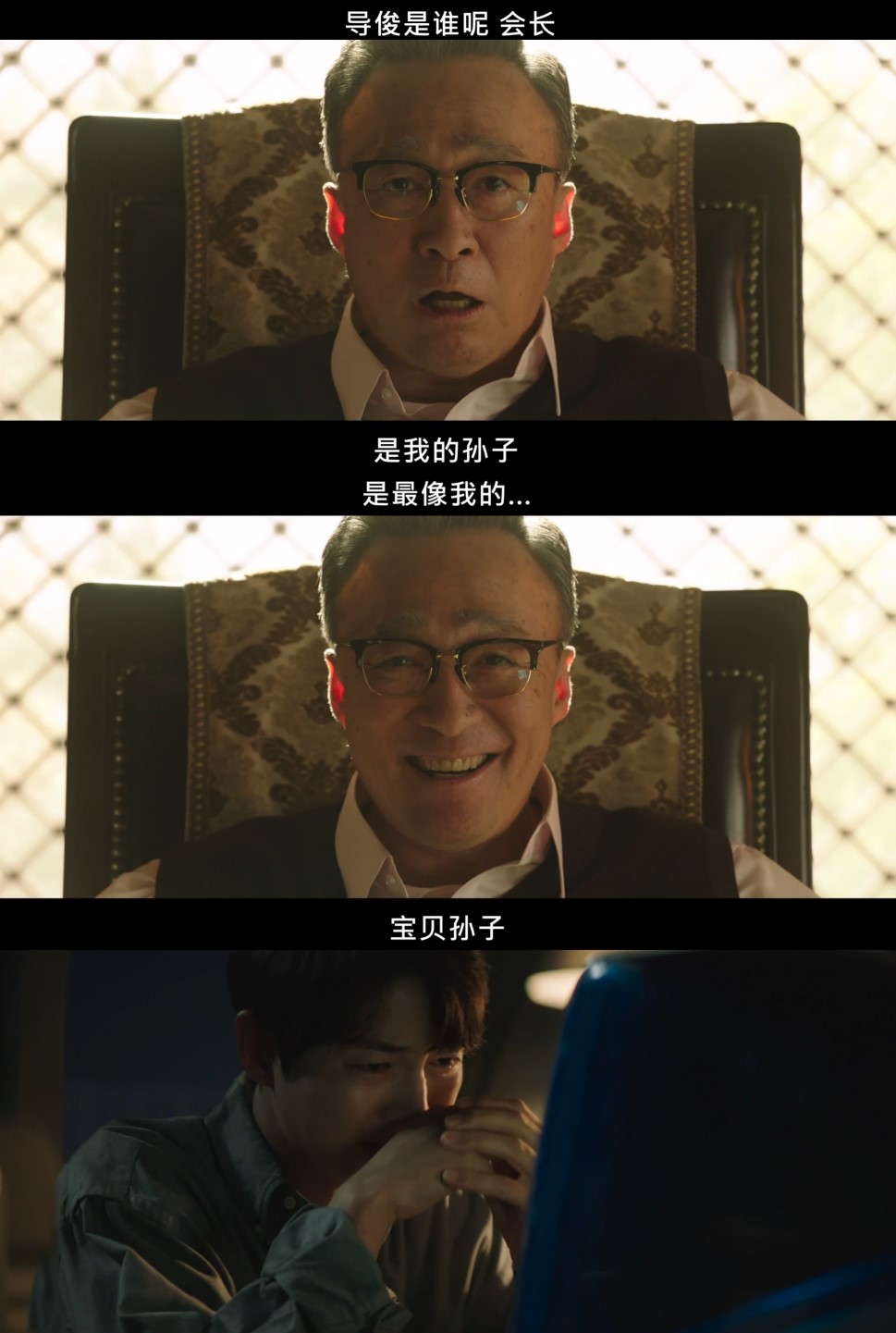
Unexpectedly, the plot trend became "The Glorious Life of Grandpa Chaebol" or "Grandpa Loves Me Again"
This is actually a common limitation of many rebirth works. No matter how much resentment there is, it is just personal grievances, and the mechanism that causes the suffering of all beings remains intact.
Many times when some large-scale film and television dramas in South Korea are broadcast, everyone feels that they dare to shoot. But sometimes, after watching too much, I also feel that this kind of film and television drama is "a small curse that helps a lot", allowing the Korean people to vent their dissatisfaction with the chaebol, so as to better maintain the stability of the chaebol capitalist system. So what if Chen Daojun becomes a better chaebol? With such a social system, there will still be countless Yoon Hyun Woo who become cannon fodder in Korean society.
